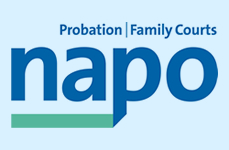Reacting to the launch of the Transdermal tagging pilots in South London, which were announced by Mayor of London, Boris Johnson, this morning, Napo, the union for probation and family court workers, claimed that the scheme would not solve the problem of binge drinking in the longer term.
Speaking on Sky News earlier today, General Secretary of Napo, Ian Lawrence, said: 'whilst the scheme is at least to be trialled first to allow for analysis, this will be seen in some quarters as a bit of a gimmick in terms of the wider issues. It is a pity that the plans to sell off the Probation Service are not also being piloted; but instead are being rushed through within a dangerously tight timetable for ideological reasons.'
It its submission to the Cross Party Drug and Alcohol Parliamentary Group in 2012, when the plans were first mooted, Napo told MPs that compulsory or voluntary sobriety schemes were controversial. The union cited the findings of charity Alcohol Concern who had expressed scepticism as to whether an enforced period of sobriety would necessarily change problem drinking in the long term.
Ian Lawrence added: ‘Napo has deep concerns about the lack of clarity about how payment and volunteerism within the scheme would work. It appears that an ability to pay would be a trade off in terms of sentencing. If the offender has to pay then it is clear that an individual with violent tendencies whilst drunk but who may be financially well off will be more likely to avoid a community intervention or a prison sentence than someone who for example might be in receipt of benefits’.
Napo also claimed that it had no confidence that the involvement of private companies in schemes of this nature would produce the expected results or value for money for the taxpayer. Ian Lawrence said: ‘the recent track record of companies such as Serco and G4S within the Justice Sector has proved that there is no substitute for properly funded intervention programmes run by skilled professionals in the Probation Service, which have been tried and tested in terms of reducing reoffending’.
